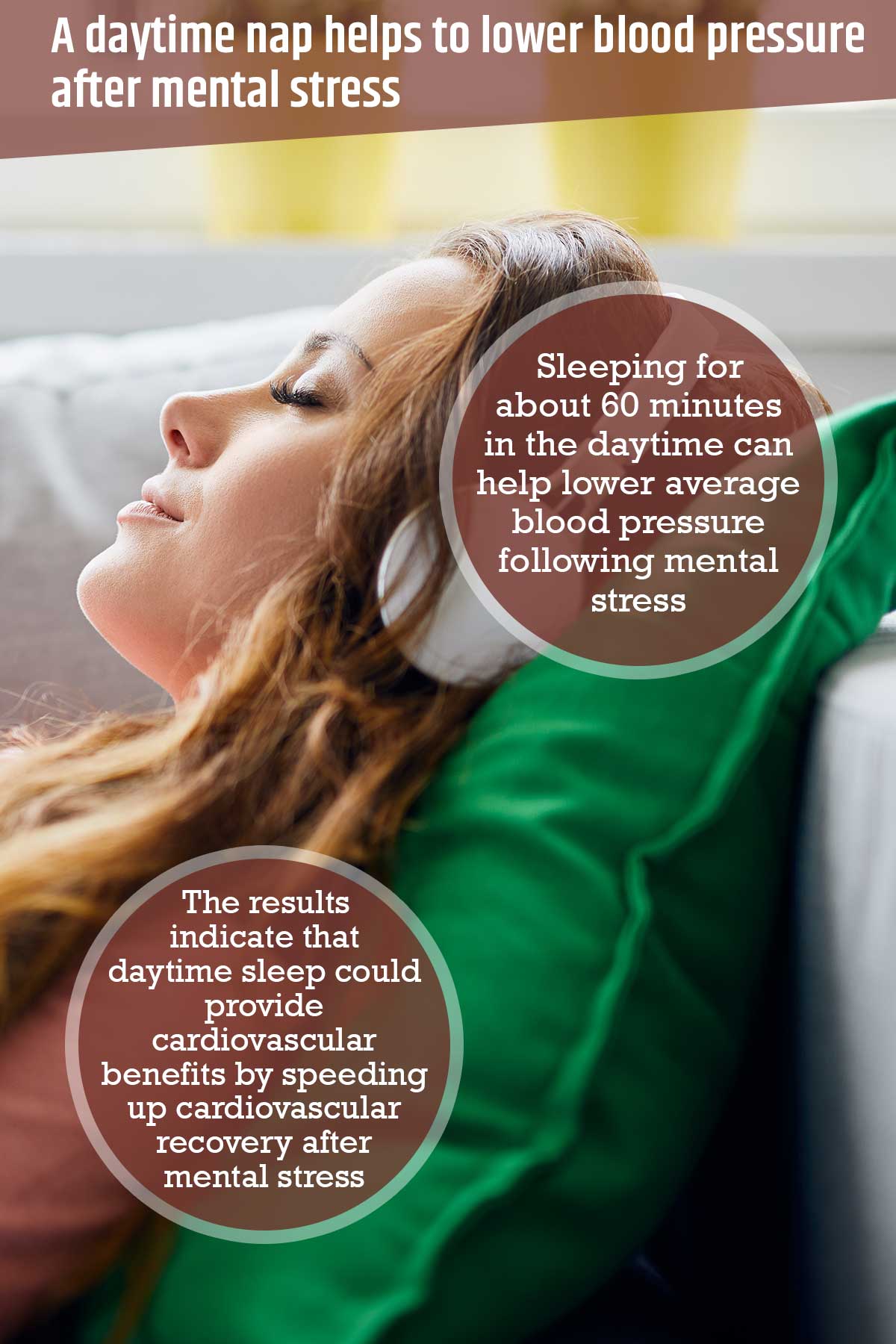Sleeping for about 60 minutes in the daytime can help lower average blood pressure following mental stress.
Researchers looked at how a daytime nap impacts cardiovascular recovery after a stress test, and discovered that those individuals who slept for a minimum of 45 minutes in the daytime had lower average blood pressure following psychological stress than individuals who didn’t sleep.1✅ JOURNAL REFERENCE
DOI: 1007/s12529-011-9150-0
Shift work, long work schedules, increased anxiety and an increased television viewing late at night and usage of the internet have had an effect on nocturnal sleep. We don’t sleep as long as we once did and this could be affecting our long term health.
The typical sleep duration is now nearly 2 hours shorter each night compared to what it was 50 years ago. Sleeping less has been connected to an increased risk of high blood pressure and general cardiovascular problems.
The experiment looked at how daytime sleep may affect cardiovascular recovery following a laboratory mental stress test. The scientists split 85 healthy individuals into 2 groups, 1 group was allocated a 1 hour interval in the daytime when they had the chance to sleep; the other group didn’t sleep in the daytime.
The scientists also asked the individuals to fill in questionnaires evaluating quality of sleep and carry out a cardiovascular reactivity task, which involved a complicated mental subtracting exercise.
Pulse rates and average blood pressure were measured at frequent intervals during the entire experiment. It was revealed that daytime sleep appeared to have a regenerative effect with individuals in the sleep condition reporting lower scores of sleepiness compared to individuals who didn’t sleep.
Although pulse rates and average blood pressure rose in both groups between baseline and the stress phase, in the recovery phase, individuals who had napped had considerably lower average blood pressure readings compared to individuals who hadn’t slept.
These outcomes reveal that sleeping from 45 and 60 minutes in the daytime seems to help with blood pressure recovery following a mental stress task.
The results indicate that daytime sleep could provide cardiovascular benefits by speeding up cardiovascular recovery after mental stress.
More studies are required to investigate the mechanism through which daytime sleep is connected to cardiovascular health and also to assess daytime sleep as a restorative and protective practice, particularly for people having known risk of cardiovascular disease and individuals with suboptimal sleep quality.



